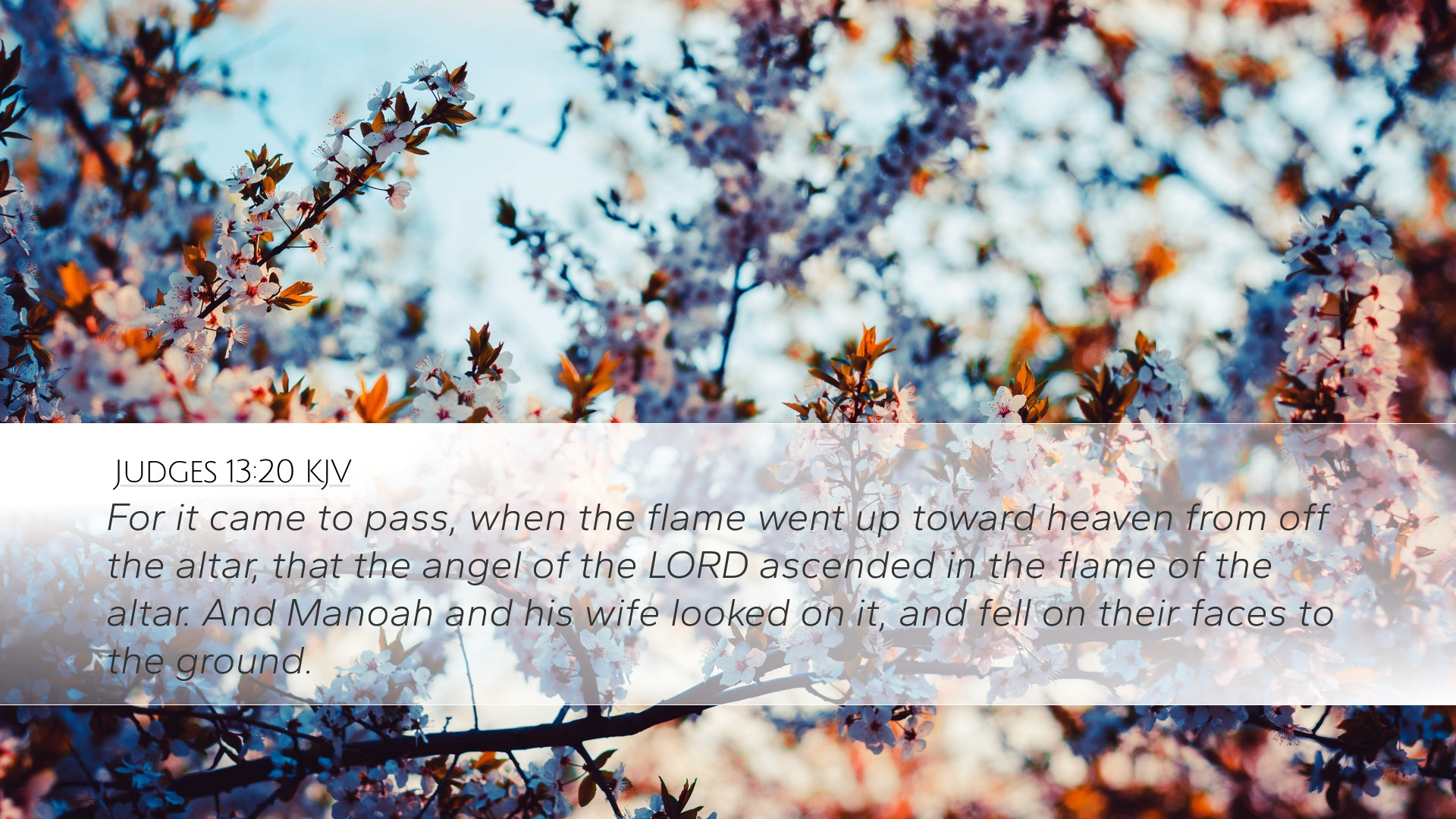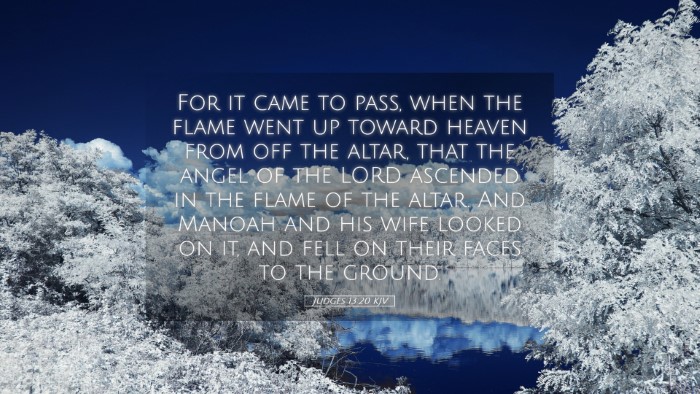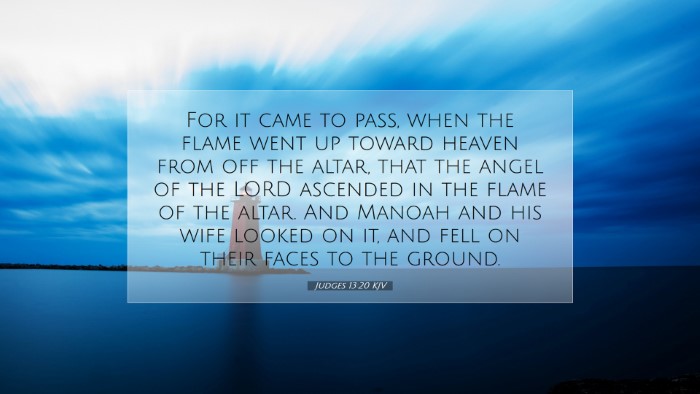Commentary on Judges 13:20
Judges 13:20 reads: "For it came to pass, when the flame went up toward heaven from off the altar, that the Angel of the Lord ascended in the flame of the altar. And Manoah and his wife looked on it, and fell on their faces to the ground."
Introduction
This verse encapsulates a moment of divine revelation and awe that highlights God's interaction with humanity through the angelic messenger. The actions of Manoah and his wife serve as an invitation to reflect on the nature of worship, divine presence, and holy fear.
Contextual Analysis
In the surrounding passages of Judges, Israel finds itself in a cyclical pattern of sin, oppression, and repentance. The birth of Samson, foretold by the angel, marks a significant turn in Israel's destiny. This narrative showcases God's grace amidst Israel's unfaithfulness.
Manoah's Role and His Wife
The couple, particularly Manoah’s unnamed wife, demonstrates faith and inquiry. While Manoah often receives the spotlight, it is important to acknowledge the role of his wife, who first receives the word from the angel (Judges 13:3).
Theological Insights
This verse holds considerable theological weight that can guide pastors and theologians in their understanding of divine interactions.
1. The Nature of Divine Revelation
Matthew Henry emphasizes that the manifestation of God's angels often comes with a show of power and reverence. The ascension of the Angel of the Lord in flame indicates the holiness and sovereignty of God, which, through the angel, engages with human affairs.
2. The Symbolism of the Flame
Albert Barnes notes that the elemental element of fire symbolizes purity, judgment, and the consuming presence of God. The flame ascending represents not only a dedication but also a direct connection to the divinity’s acceptance of Manoah’s offerings.
3. Fear and Worship
Adam Clarke points out the reaction of Manoah and his wife serves as a theological lesson about the fear of the Lord. Their falling on their faces epitomizes the appropriate attitude of reverence before a holy God.
Application to Modern Faith
This passage offers a template for engagement with the divine that modern believers can utilize in their worship and spiritual formation.
1. Recognizing God’s Presence
Today’s believers must cultivate an awareness of the sacred in their worship. Just as Manoah and his wife recognized the divine, worship should be approached with profound respect and acknowledgment of God's holiness.
2. Responding with Reverence
The response of Manoah and his wife in falling prostrate before the Lord underscores the need for humility in our encounters with God. This posture serves as a reminder of our own limitations and His transcendence.
3. The Significance of Sacrifice
The altar and flame connections to sacrifice remind believers that worship requires a cost. Our spiritual offerings may take shape in various forms: time, resources, or acts of service for the Kingdom.
Conclusion
Judges 13:20 provides rich insights into the divine-human interaction characterized by reverence, sacrifice, and the acknowledgment of God’s sovereignty. As we reflect on this passage and the commentaries of Henry, Barnes, and Clarke, we are led to a deeper understanding of not only the historical and cultural context but also the personal implications of encountering God through worship and reverence.


